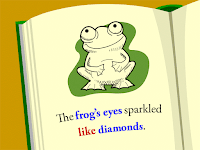DISCOURSE ANALYSIS
Now,
we are going to discuss about discourse analysis. So, what is discourse? What
is analysis? What is discourse analysis? I will try to explain to you.
A. What is Discourse?
1. Discourse is
generally used to designate the forms of representation, code, conventions and
habits of language that produce specific fields of culturally and historically
located meanings. (Michel Foucault’s)
2. Discourse is the
discipline devoted to the investigation of the relationship between form and
function in verbal communication. (Dutch linguist Teun Van Dijk)
3. Discourse is a
continuous stretch of (especially spoken) language larger than a sentence,
often constituting a coherent unit such as a sermon, argument, joke or
narrative. (Crystal)
4.
Discourse is written as well as spoken:
every utterance assuming the a speaker and a hearer as discourse. (Benvenisle,
1971: 208-9)
B. What is Analysis?
5. Analysis is the
process of breaking a complex topic or substance into smaller parts in order to
gain a better understanding of it.
6. Analysis is the
process of breaking up a concept, proposition, linguistic complex, or fact into
its simple or ultimate constituents. (Cambridge Dictionary of Philosophy, 2nd
ed., 1999, ed. Robert Audi)
7. Analysis is the
process of breaking a concept down into more simple parts, so that its logical
structure is displayed. (Oxford Dictionary of Philosophy, 1996, by Simon
Blackburn)
C. What is Discourse Analysis?
8. Discourse
Analysis is concerned with the study of the relationship between language and
the contexts in which it is used.
9. Discourse
Analysis is a general term for a number of approaches to analyze written,
vocal, or sign language use, or any significant semiotic event.
10. Discourse Analysis is sometimes defined as the
analysis of language beyond the sentence.
11. Discourse Analysis is concerned with the use of
language in a running discourse, continued over a number of sentences, and
involving the interaction of speaker (or writer) and auditor (or reader) in a
specific situational context, and within a framework of social and cultural
conventions. (Abrams and Harpham, A glossary of literary terms, 2005)
12. Discourse analysis is concerned with language use as
a social phenomenon and therefore necessarily goes beyond one speaker or one
newspaper article to find features which have a more generalized relevance.
This is a potentially confusing point because the publication of research
findings is generally presented through examples and the analyst may choose a
single example or case to exemplify the features to be discussed, but those
features are only of interest as a social, not individual, phenomenon.
(Stephanie Taylor, What is discourse analysis? Bloomsbury, 2013)
13. Discourse
analysis is not only about method; it is also a perspective on the nature of
language and its relationship to the central issues of the social sciences.
More specifically, we see discourse analysis as a related collection of
approaches to discourse, approaches that entail not only practices of data
collection and analysis, but also a set of metatheoretical and theoretical
assumptions and a body of research claims and studies."
(Linda Wood and Rolf Kroger, Doing
Discourse Analysis. Sage, 2000)
14. Discourse
analysis is defined as (a) concerned with language use beyond the
boundaries of a sentence/utterance, (b) concerned with the interrelationships
between language and society and (c) as concerned with the interactive or
dialogic properties of everyday communication.
15. Discourse analysis
is a broad term for the study of the ways in which language
is used in texts and contexts.
Also called discourse studies.























